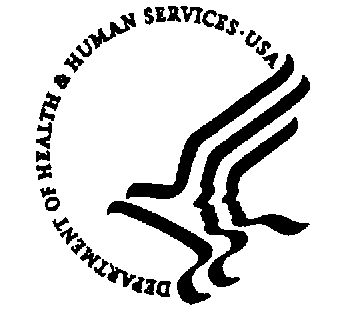OMB justification memo final
OMB justification memo final.doc
Focus Groups as Used by the Food and Drug Administration
OMB justification memo final
OMB: 0910-0497

DEPARTMENT OF HEALTH AND HUMAN SERVICES Public Health Service
Food and Drug Administration
____________________________________________________________________________________________________________________________
Memorandum
Date June 26th, 2009
From PRA
Specialist, Paperwork Reduction and Records Management Staff
Office
of Information Management
Subject Request for Approval of FDA Focus Group, Risk Communication Strategies for Medical Countermeasure Distribution; OMB Control No. 0910-0497
To Human Resources and Housing Branch
Office of Information and Regulatory Affairs, OMB
Through: HHS Reports Clearance Officer Jonna Lynn Capezzuto
The Food and Drug Administration (FDA), Office of the Commissioner, Office of Counterterrorism and Emerging Threats is seeking OMB approval under the generic clearance 0910-0497 to conduct focus groups, Risk Communication Strategies for Medical Countermeasure Distribution. The focus groups will determine the most effective fact sheet format used during previous public health emergencies.
1. Justification and background
The purpose of the focus group is to determine the most effective format for consumer fact sheets to be distributed with medical countermeasures pushed to the States and local governments in response to a public health emergency. A public health emergency may require the Centers for Disease Control and Prevention, Division of the Strategic National Stockpile (SNS) to release an allotment of medical countermeasures to the States. The States will receive their allotment and proceed with their emergency response plans for distributing and dispensing the medical countermeasures through mass dispensing sites. Mass dispensing countermeasures at the State and local level requires an emergency use authorization (EUA) since mass dispensing falls outside the usual or accepted practice of medicine model. The EUA will allow States to provide additional labeling (fact sheets) explaining the safety and efficacy of the countermeasure.
FDA subject matter experts will provide the content of the fact sheets. The information in the fact sheet is important and may be complicated for consumers to understand. Formatting the information properly will make it easier for the consumer to comprehend the information and improve their ability to make informed decisions about the countermeasure during a highly stressful time.
The Emergency Use Authorization (EUA) authority granted by Congress allows the FDA Commissioner to strengthen the public health protections against biological, chemical, radiological, and nuclear agents that may be used to attack the American people or the U.S. armed forces. Under section 564, the FDA Commissioner may allow medical countermeasures to be used in an emergency to diagnose, treat, or prevent serious or life-threatening diseases or conditions caused by such agents, when there are no adequate, approved, and available alternatives.
The range of potential EUA products includes drugs, biological products (e.g., vaccine, blood products, and biological therapeutics), and devices (e.g., in vitro diagnostics). Candidate products include those products that have not been approved or cleared under the FD&C Act or the PHS Act ("unapproved products"), as well as unapproved uses of approved drugs and approved or cleared devices ("unapproved uses of approved products").
2. Description of Focus Groups
a. Respondent Description
The contractor will hold four focus groups in Washington D.C. with nine participants in each focus group. Participants in the focus groups will be 18 years or older and there will be no restrictions on gender, race or ethnicity when recruiting for the focus groups. Participants will receive a $75 stipend for their time and effort in the focus groups.
b. Information collection procedures
The contractors will use a respondent screener guide to recruit participants. The contractor will use a moderator’s guide to facilitate the focus groups. FDA will observe the focus groups through a one-way mirror to identify improvements to the moderator’s guide for the next focus group. Participants will sign an informed consent form and the moderator will tell participants at the beginning of the focus group that all information will remain confidential and all responses will be anonymous.
c. Estimate of Burden
FDA estimates that the combination of the screening time and the focus group will be approximately 1.6 hours for each participant. Each participant will spend 5-10 minutes with the contractor during the recruitment call and 1.5 hours in the focus group session. The total burden will be fifty-eight hours.
Table 1. Estimated Annual Reporting Burden for Selected Respondents
Number of Respondents |
Annual Frequency per Response |
Total Annual Responses |
Hours per Response |
Total hours |
36 |
1 |
36 |
1.6 |
58 |
There are no plans to follow up with participants. The contractor will write a top-line report and submit it to FDA after the final focus group. Upon completion of the focus group FDA will prepare and submit a report summarizing the focus group results and submit it to OMB. FDA understands that further research will need to be conducted and plans to continue working with agency stakeholders to facilitate development and availability of medical countermeasures to be used in the event of a terrorist attack or emerging threat. Next steps, however, have not yet been determined. FDA will seek OMB approval as appropriate for these next steps.
| File Type | application/msword |
| File Title | DHHS Memorandum |
| Subject | Memorandum - DHHS |
| Author | james.morris |
| Last Modified By | Jonna Capezzuto |
| File Modified | 2009-12-02 |
| File Created | 2009-09-09 |
© 2026 OMB.report | Privacy Policy